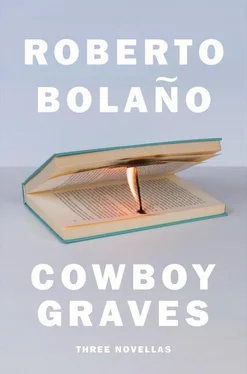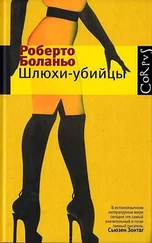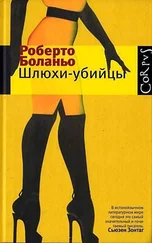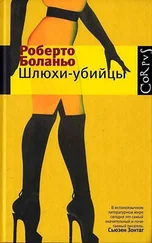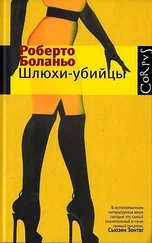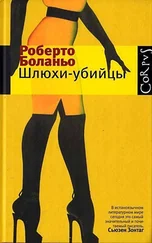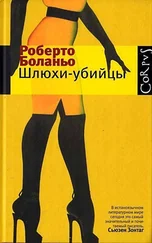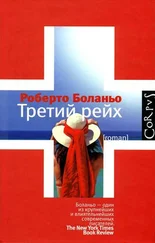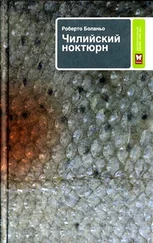The story was unfinished. I might expand it and turn it into a novel, I said to the Jesuit. The Jesuit said nothing. Maybe he hadn’t liked the last part, about the Amazon missionary. When I got back to the party, I thought about making some changes and asking him to read it again. But then Dora Montes’s secretary came in and I forgot about the story and the Jesuit. Dora is about to do something desperate, was the first thing she said. I was sitting and she was leaning over me, speaking almost into my ear. She smelled spicy, a combination of Italian food and perfume. I asked what she meant. Why would Dora do something desperate? For love, why else, said the secretary, sitting down next to me. Her hand felt for mine under the table and she furtively handed me a bill. Buy me a drink, she said, smiling. When I got up, I tried to see whether Dora Montes had come into the room, but I couldn’t spot her. When I came back with two whiskeys, I handed the secretary the change over the table and I asked her to explain clearly to me what was wrong with Dora. She’s going to strip in front of everyone, she said, fixing me with her gaze. And it’s your fault, she added.
One of the most indelible memories of my return trip to Chile is a night that I spent at a boardinghouse in Guatemala. The walls were probably thin and the head of my bed must have been against the head of the bed in the neighboring room. At first everything was silent and I settled down to finish a book while having a peaceful smoke. The book was Pierre Louÿs’s Aphrodite . At some point I must have fallen asleep. Then I heard voices and I woke up. It was two men talking. By their accents I could tell that they weren’t Mexican. One of them might have been Central American; the other, Venezuelan or Panamanian. I don’t know why, but I imagined that the second man was black. Their room had two beds, like my room, and the Central American was in the bed up against mine: for a moment I imagined his head resting on the exact same piece of wall as mine. Even before I woke up, I knew what they were talking or arguing about: that’s the only way I can explain the distress I felt. The Central American was talking about knives. The Venezuelan, who might have been even more upset than I, was expounding on different brands of knives. The Central American told him to shut up, saying all that mattered was the arm that wielded the knife. The Venezuelan expounded on famous Venezuelan knife fighters. The Central American said that all this (all what?) was sissy chatter, real fighters lived in anonymity. The Venezuelan agreed, saying that anonymity and humility were man’s Sunday suit. The Central American said that men who wore Sunday suits didn’t deserve to call themselves men. The Venezuelan assented, undeterred, and said that he was absolutely right, real men wore good suits every day of the week. The Central American said that real men lived in anonymity and blood, no suit required. Anonymity and blood, said the Venezuelan. That’s poetry. Beautiful. The Central American coughed then, as if the presence of the Venezuelan was suffocating him, and he told a story. The story was about a woman, a showgirl like Dora Montes, whom he’d grown fond of. A beautiful woman, he said, twenty-eight but still in great shape, serious and hardworking. A woman with whom he had a son or a daughter (it wasn’t clear; he might even have been referring to the woman’s child from a previous lover) and with whom he lived happily for a while. A woman he put to work and who didn’t complain. A woman he could curse at and hit, never hearing anything from her lips but the most reasonable complaints (he used the word reasonable several times and also sense and nonsense ). So what happened, compadre? asked the Venezuelan in a quavering voice. I imagined him as black, maybe a boxer, stronger than the Central American in any case, capable of knocking him down nine times out of ten, but reluctant to fight, wanting to sleep and get back on the road the next day. What happened? asked the Central American, close to my ear. What happened to that happy life, compadre? repeated the Venezuelan. Five months ago, I killed her, said the Central American. And then: with a kitchen knife. And much later: I buried her in the yard of our little love nest. And finally, just as I was about to fall asleep: I said that she had gone on tour. That’s what you told the authorities, compadre? The police, yes, said the Central American, in a voice tinged with sleep, weariness, even vulnerability, any drunkenness or aggression gone.
That night, I found Dora Montes on the forecastle deck, in an area reserved for the very few first-class passengers. She was drunk. I told her she was in no condition to strip, and I took her back to my cabin. We made love until Johnny Paredes came in. Dora, unlike many drunks whose bodies go limp or unsynchronized, was taut and moved with mathematical precision. Christ, said Johnny Paredes when he turned on the light, I’ve been looking for you for hours, your sister told me you wanted to kill yourself. Then he sat on his bunk and we all started to talk. According to Dora, she was just sad and she had no plans to kill herself (only fools did that), let alone take off her clothes in public. My sister must have made that up to get you to come after me, she said, looking me in the eyes. I can come back in an hour, if you want, said Johnny Paredes. No need, said Dora, get in your bunk and go to sleep. Johnny turned off the light and got undressed in the dark. Good night, he said. Good night, we said. It was too dark to see anything, but I knew that Dora was smiling.
The next afternoon Dora made love with Johnny Paredes. That night, she came back to make love with me, and when we reached Arica, to celebrate our arrival on Chilean terrain all three of us made love together, which was a disaster. Johnny and I kept watching each other surreptitiously and in the end Dora burst out laughing.
We reached Valparaiso at night and for reasons unknown they wouldn’t let us disembark until the next morning. That night, Dora Montes, her secretary, Johnny Paredes, and I stayed up late on deck talking, gazing at the lights in the mountains, and listening to Chilean radio. I remember that Johnny told stories about gang members in Caracas, probably made up; Dora and her sister told stories about Central American nightclubs; and I said that in Panama I had seen Last Tango in Paris and met a black waiter at the bar on the ground floor of my rooming house who had seen every single movie made in Mexico and who advised me not to go back to Chile. Dora and her sister didn’t say anything. But Johnny seemed interested. Why did he tell you not to go back? I don’t know, I said. He was black, skinny, and I think he was gay. He said he liked me. Oh, said Johnny, now I get it. He even told me he knew how to resell the boat ticket so I could go back to Mexico. Stop right there, said Johnny, it’s plain as day.
The next day we left the ship. Johnny Paredes was met by his aunt from Viña del Mar. Dora and her secretary were met by two big men with mustaches and dark suits. Our goodbyes were formal. Then I shouldered my backpack and set off on foot for the train station.
Iwas dreaming about a woman with bright eyes when shouts woke me. It was Juan de la Cruz, a painter and sculptor of virgins, whose house I was staying in. My first thought was that I was being kicked out or that I had a phone call from Mexico, something serious to do with my mother’s health, maybe. Then I realized that Juan de la Cruz was moaning, not shouting, and that he was tearing at his hair with one hand as he shook me by the shoulder with the other, though his voice barely rose above a whisper, as if he was afraid he would be overheard. I jumped out of bed naked and asked whether there was a call for me. The painter sat down on the bed that I had just abandoned and said not to worry, my mother was fine, or he guessed she was, and then he said that he wished he could be with my mother right now, or even my father, or begging for change around Chapultepec (which is something that makes an impression on tourists—Juan de la Cruz had been in Mexico not long ago). The military has risen up, he said, it’s all over. My first feeling was relief. My mother was fine, my family was fine. I got dressed and went into the bathroom to wash my face and brush my teeth, followed by the painter, who summed up for me over and over again what had happened so far, and then we had a cup of tea together. I asked what he planned to do. What can I do? he said, I’m an artist, it’s all over.
Читать дальше
